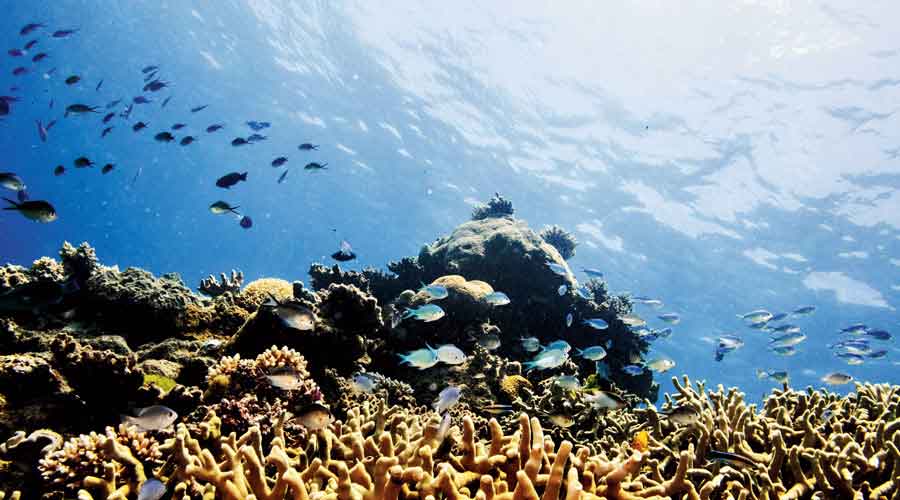Australia has garnered enough international support to defer an attempt by the United Nations’ cultural organisation to downgrade the Great Barrier Reef’s World Heritage status because of damage caused by climate change.
Unesco had recommended that its World Heritage Committee add the world’s largest coral reef ecosystem off the northeast Australian coast to the World Heritage in Danger list, mainly due to rising ocean temperatures.
Australian-proposed amendments to the draft decision at a committee meeting in China on Friday would have deferred the “in danger” question until 2023.
But Norway moved amendments that put the reef back on the committee’s agenda at its annual meeting next June.
In the meantime, a monitoring mission will visit the reef to determine how the impact of climate change can be managed.
Australian environment minister Sussan Ley on Friday told a virtual meeting that downgrading the reef’s status before the committee had finalised its own climate change policy made no sense.
“Delegates, we ask only two things: time for experts to see first hand our commitment to the reef, its present condition and our management, and for the final climate policy to provide a consistent framework for addressing the impacts of climate change on all World Heritage properties,” she said from Australia, where she is in quarantine after lobbying delegates in Europe and West Asia on the decision.
In 2014, Australia was warned that an “in danger” listing was being considered rather than being proposed for immediate action.
Australia had time to respond by developing a long-term plan to improve the reef’s health called the Reef 2050 Plan.
Since then, the reef has suffered significantly from coral bleaching caused by unusually warm ocean temperatures in 2016, 2017 and last year. The bleaching damaged two-thirds of the coral.
Australia reacted angrily last month when the draft decision was published to remove the network of 2,500 reefs covering 348,000sqkm from the World Heritage list it joined 40 years ago for its “outstanding universal value”.
The “in danger” listing is one step away from losing all World Heritage standing.
“This decision was flawed. Clearly there were politics behind it,” Ley said at the time.
Many in Australia’s conservative government saw the move as an attempt to pressure it into committing to reducing the nation’s greenhouse gas emissions to zero by 2050 and to stop allowing coal mines to be expanded.
In arguing for the reef’s downgrade, Unesco World Heritage Centre’s marine programme coordinator, Fanny Douvere, referred to the Intergovernmental Panel on Climate Change’s conclusion that global emissions needed to fall to zero by 2050 to limit global warming to 1.5°C.
“Accelerated action on climate change on all possible levels, in accordance with the 1.5°C target under the Paris Agreement for Climate Change, and the recovery of the property from poor water quality are both vital and are urgent to secure the outstanding universal value of the Great Barrier Reef for present and for future generations,” Douvere said.
Greenpeace said in a statement that the committee had missed an opportunity to shine a light on Australia’s neglect of a natural wonder.











